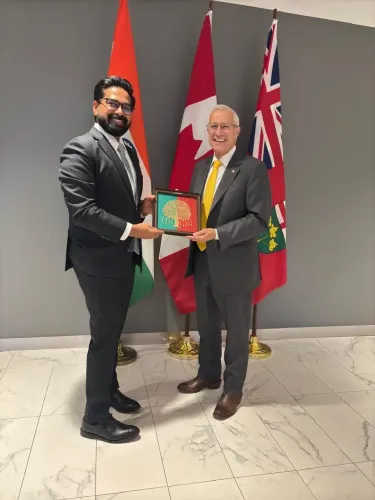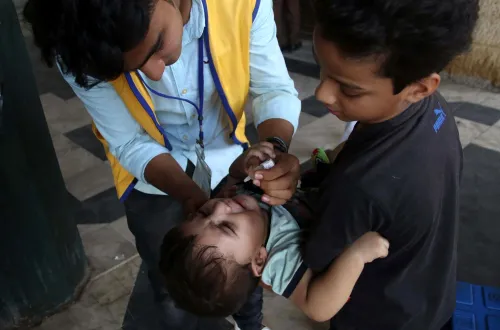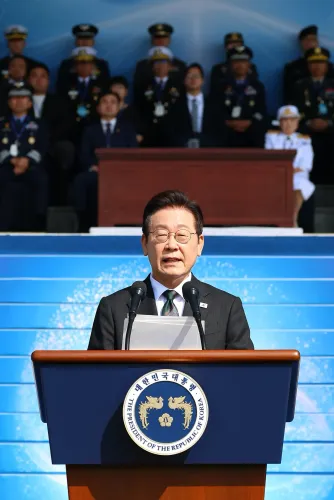How is Namibia Advancing Financial Inclusion to Address Colonial-Era Inequalities?

Synopsis
Key Takeaways
- Financial inclusion is essential for addressing inequality in Namibia.
- The National Youth Entrepreneurship Fund aims to support youth businesses.
- 78% of adults now have access to financial services, up from 51% a decade ago.
- Targeted support will focus on women, youth, and rural residents.
- A real-time data platform will enhance decision-making in the financial sector.
Windhoek, Sep 4 (NationPress) Namibian Finance Minister Ericah Shafudah emphasized on Thursday the importance of financial inclusion in tackling the nation's enduring inequality, as Namibia prepares to host the 2025 Alliance for Financial Inclusion (AFI) Global Policy Forum in the coastal city of Swakopmund.
Under the theme 'Empowering Society, Enabling Growth', the forum has attracted central bank governors, policymakers, and global experts to discuss strategies for fostering inclusive finance.
During her opening remarks, Shafudah pointed out that Namibia remains one of the most unequal nations globally, a consequence of exclusionary policies from the colonial and apartheid eras, as reported by Xinhua News Agency.
"The shadows of these divisive historical policies still persist even after three and a half decades of our independence," she stated, underscoring that access to finance is essential for empowering citizens and mitigating disparities.
She highlighted that financial inclusion has seen considerable progress in Namibia, with 78 percent of adults now having access to financial services, up from 51 percent a decade ago. However, 22 percent of the population, especially women, youth, rural dwellers, individuals with disabilities, and those in the informal sector, continue to be excluded.
"True financial inclusion goes beyond just having a bank account; it’s about empowering our citizens economically, enabling them to save securely, invest wisely, and build resilience against shocks," Shafudah stated.
She urged the international community to offer substantial support to countries that are lagging, saying, "We need not only to host AFI events but also to receive customized policies and real resources to leapfrog and close global inequalities of all types."
On September 2, Shafudah announced that Namibia has launched a 500-million-Namibia-dollar (approximately 28 million US dollars) National Youth Entrepreneurship Fund aimed at combating youth unemployment, providing collateral-free loans, flexible repayment options, and interest rates capped at 4 percent.
Speaking to lawmakers, she explained that the fund will be distributed via various development finance institutions, including the Development Bank of Namibia, Agribank, and the Environmental Investment Fund, to enhance accessibility and minimize financing bottlenecks for youth enterprises.
Shafudah stated that the initiative aims to support at least 350 youth businesses and create 4,000 jobs in its initial phase, ensuring regional balance and targeted assistance for women, rural youth, and individuals with disabilities.
"Directed lending guidelines will ensure fairness by addressing regional disparities, promoting women's empowerment, and supporting marginalized communities," the minister noted.
The fund will also offer non-financial assistance such as mentorship, coaching, and market access, while a real-time data platform will be established to connect government ministries and financial institutions, Shafudah added.
"This platform will enhance decision-making, reduce funding duplication, and ensure the fund remains adaptable and responsive to the needs of young people," she explained.
Shafudah concluded that the initiative aligns with Namibia's comprehensive financial sector reforms and employment generation goals, aiming to alleviate poverty, promote economic inclusion, and strengthen social stability by addressing youth disenfranchisement.









